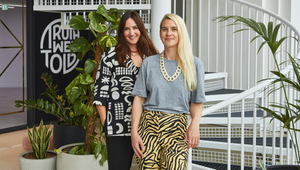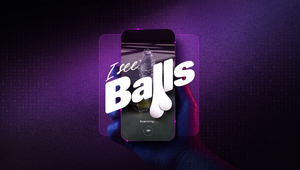
Human Truths One Year Later: Lessons for Connection in a Time of Coronavirus

Image Credit: South China Morning Post
Over the course of the last year, we have been tracking the impact of the pandemic on universal human truths. We know that people across Europe and the UK have been considering what truly matters, with nearly half of Europeans saying that they believe that the world will forever be changed by the pandemic. In our ongoing series, 'Human Truths in a Time of Coronavirus', we have explored how the fundamental human truths have been reassessed by people around the world and how brands, businesses, and organisations can respond in a meaningful way.
As we enter the second year of the pandemic and search for a path to renewal, we have invited thought leaders from diverse sectors and areas of expertise from across Europe and the UK to reflect on what they have changed their mind about when it comes to each of these truths. In this third instalment of a six-part series, we have asked our contributors to reflect on what they have changed their mind about when it comes to the human truth of connection.
The human truth of connection has arguably sustained the greatest impact from the dynamics of the coronavirus pandemic. Not only for the billions of people forced into lockdown or quarantine conditions, but also for those who have been moving more freely, albeit with social distancing measures and masking requirements. In the earliest weeks of the pandemic preparations and precautions, people across Europe and the UK were just as likely to be keeping their family updated as they were boosting their immune systems (31% in both instances) – placing human connections on par with preventative health treatments.
Fortunately, the majority of our respondents shared a positive outcome of the pandemic that offers hope for the renewal of stronger human connections: 3 out of 5 people in Europe and the UK say that the pandemic has strengthened their relationships and bonds with others. Further, 1 out of 3 people say that they hope that the biggest lasting change coming out of the pandemic is closer connection to family and friends. Of course, there is mounting evidence that specific types of connections have not benefited; for instance, despite the preponderance of options to access medical care via telemedicine platforms, only 7% of our respondents believe that telemedicine is better than an actual visit to a doctor. Even more worrying is that 2 out of 5 people across the region say their relationships and bonds have weakened.
Our contributors provide further insights into how the singular event of the global pandemic has profoundly challenged the experience and value of the human truth of connection in their lives and work. What emerges is a view of human connection that balances the rewards that technology has enabled with a rise in appreciation for the undeniable value of co-presence, the joy of intimacy, and the comfort found in negative space. These reflections on connection provide a series of lessons for enhancing our connections in a social world undergoing radical renewal.
Be wary of pseudo-satisfiers for the fundamental need for human connection.
NIC MARKS: “Connections are the cornerstone of peoples’ experience and actually one of the things that's been most under pressure with COVID. We thrive on human contact and of course in my sort of specialist subject of happiness and well-being, it's always the biggest driver of that. What I’ve seen people doing well is looking after their core relationships. What's really come to suffer is the next band out. If you know the Dunbar numbers of five core friends, 15 really good ones, and 150 for your network - the 15 to 150 got quite depleted over the last year. If I look at my data, I know that team relationships and friendships are scoring lower at the end of lockdown than they were at the beginning significantly - across all walks of life. I just did a culture profile of a large organisation today and basically people are tired and all the comments they write about really looking forward to seeing people again. Although people have managed to use Zoom and Teams in all sorts of ways to be satisfied, it is no substitute for face to face. Pseudo-satisfiers give you the feeling of being satisfied that they don't really deliver on. One of the things that's going on with quiz nights and all sorts of other stuff is that there's a sort of pseudo-satisfaction for being connected but it still doesn't really deliver.”
Be prepared to eliminate the distance that disrupts the big, vital connections.
MARK TUNGATE: “Connection comes in big and small varieties. Here’s an instance of the big vital connections. My sister-in-law, her husband and their three kids – one of whom is my goddaughter – live far away from us in a small town in the south of France. A pretty place, but nothing special. Not Saint Tropez, by any means. Last summer, when the first lockdown was over and there was a vague sense of normality, my parents-in-law moved down there too. We were left in the city. I’ve always gotten on with my wife’s family, but until recently I hadn’t realised how much. When we visited over the summer holidays, I relished our long dinners in the garden, the kids playing together, the easy conversation. On the way back, my wife and I agreed: we wanted more of that. Skype or Zoom weren’t going to cut it. So, we put our apartment up for sale. That story isn’t over yet – we’re still hunting for a place down there – but it was started by the need for connection. Not remote, but close, over food and drinks and laughter. During the pandemic, I think, a lot of us have been craving that. And the solution will change some of our lives for good.”
Create forums where those who are disconnected can hold one another up.
PINKY LILANI: “Connections actually was the number one thing that stood out last year because of the work I do. How do we continue our mission of building a community of emerging women leaders and shining a light on these women, making them feel good about themselves, platforming role models, and changing the trajectory for them? Suddenly the rug got pulled from under our feet and we were in the wilderness when it first happened: it was absolutely upsetting. Every single day, I would ring up five people because our network and alumni database is huge. Talking to them kept my sanity. We started having coffee mornings where we connected our alumni in South East Asia with the ones here; here were farmers in the Philippines and people working with refugees in Malaysia connecting with people here. They felt that their own problems were shared by others and they were holding each other and raising each other up. Connections were the fire that lit everyone’s life – it kept them going and it energised them. Later, when I found that we actually delivered every single programme that we were meant to even though it wasn't face to face, that was so inspiring. Connections just kind of flowed very well.”
Find shortcuts to engender the trust that is foundational to meaningful connections.
ELINA GRIGORIOU: “I want to bring up the element of trust when it comes to connections, particularly in a business scenario. It’s been very interesting trying to win work when you haven't physically met or been adjacent to another person. We are in a contract now that we signed in late December just before Christmas. We started negotiating early summer and yes it was a big contract and yes it took time to develop it; but I think it took so much longer because we were doing it virtually and missing those tiny subtle mannerisms of being in the presence of another person that allows you to know them. We've got to learn how to do that and that’s maybe the thing that we can do on the website: how much about day-to-day life do we communicate on the website and how do we tell a story that's way more human that can shortcut to some of that trust developed in during a walk from reception to a meeting room? I've been finding ways to do that. I just did a mini presentation and I said if I was in that room with you, we would know a lot more about each other than we know right now. I pulled up and shared some photos on my phone – no polish, just good photos of my niece’s shoes, some grass, some waste from a site. We have to work harder at business communication to truly understand what's missing without knowing, just feeling that we're missing something. We're still running to catch up and deliver and it is even harder to innovate. That's been a double whammy of the process.”
Sustain excitement for the revision of what has been with what could be.
DR. SRIDHAR VENKATAPURAM: “I'm trying to get used to connections through the technological tools that are now available and trying to think about what other kinds of tools I would like in order to help me connect with people and to do things. I think holograms would be interesting. I don't know how well and how far we are from that; but I think those might be a really fun interesting way of keeping connections with people who are quite distant. There's something human about wanting to go back to the familiar. There will be people who will say, ‘no, I don't want to use technology; I want to go visit my family’, and then after three days they'll remember why this was not fun all the time anyway. Then they'll say, ‘oh, okay so we're going to balance this out better’. The first year might be that everybody suddenly does these mass migrations to family, parents, or children – or, to hot sunny beaches or whatever it might be. The sense that the possibility of going back to how things used to be is what has been keeping people going. Then, within a year or two, they'll suddenly start integrating new choices and options into whatever it is that they want to do. As you probably know, we can fairly predict what lots of people will do in the short term, it’s what will happen over the longer term that's much less predictable.”
About the Authors and Contributors:
Dr. Rodney Collins, PhD, SVP, Director, McCann Worldgroup Truth Central
Elina Grigoriou, Interior Designer, Sustainability and Wellbeing Expert, Grigoriou Interiors
Pinky Lilani, CBE, DL, Founder and Chairman, Women of the Future
Nic Marks, Founder & CEO, Friday Pulse
Harjot Singh, Global Chief Strategy Officer, McCann
Mark Tungate, Editorial Director, EPICA Awards
Dr. Sridhar Venkatapuram, PhD, Associate Professor, Global Health & Philosophy; Director, Global Health Education & Training at King's College London















